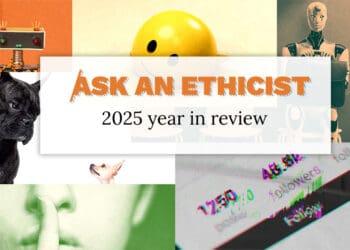This is the time of year most of us seek to transform our circumstances by adopting better habits. Valerie Charles, Chief Strategy Officer at GAN Integrity, analyzes key ethical and regulatory issues from last year and details three practices companies can implement to improve their compliance programs going forward.
The new year is a time to break bad habits and adopt good ones. For ethics officers wanting to turn over a new leaf in 2019, here are three good habits to take up.
1. Put on Your Innovation Cap
Last December, banking regulators published a joint statement advocating for innovation in compliance programs to better align with anti-money-laundering regulations. They recommended implementing innovative approaches like new financial intelligence units or artificial intelligence to monitor transactions. That’s welcome news, and compliance officers outside the banking sector should try innovation, too.
You could, for instance, use advanced analytics to identify weaknesses in the supply chain. You could try training programs that screen employees more quickly at the beginning of an online lesson to route employees to the training modules most applicable to them. Or, as the banking regulators suggested, perhaps AI can help filter out false positives in your transaction monitoring. Many firms outside the banking world have AML compliance headaches too, after all.
Innovation skills are handy to have across the organization, so exercise them. Launch pilot programs. See what doesn’t work, what sort of works and what does, which you can integrate into your existing compliance program. Your ability to innovate better ways to do it is going to be a crucial career skill.
2. Simplify Your Code of Conduct
Organizations are exposed to more and more risks as the business environment becomes increasingly complex. That, in turn, means your code of conduct can go one of two ways: Either it also becomes more complex, crammed with more and more policies for each new issue that crops up, or you make it simpler, dwelling on a few fundamental ethical principles that apply to your employees and third parties at all times.
Boeing has done just this with its one-page, 341-word code of conduct. Yes, Boeing also has reams of policies for its myriad other issues, but the company supports the principles in the code of conduct. The code itself is short and clear.
Employee time and attention are important assets. Boeing gets this right by using these assets sparingly. If your code of conduct goes on and on, the risks and complexity out there will overwhelm your employees and, ultimately, the business.
3. Solidify Your Investigations
The #MeToo movement has practical implications, and strengthening your investigation protocols is one of them. Allegations of retaliation have soared, which means corporate investigations aren’t working the way they should: to determine the truth of a matter and hold a culprit accountable rather than to shut down the people raising concerns.
If you set up clear protocols in advance, they will help others see when an investigation starts drifting from “find the truth” to “silence the whistleblower.”
In a similar vein, ethics professionals would do well to consider whether they need to improve training related to investigations. Managers need to understand what an allegation actually is and to recognize when an employee is making one. There have been too many tales of a manager overhearing an employee complaining about a serious issue and then deciding not to follow up. People also need to understand what retaliation is so they don’t engage in it or even give the impression that they are retaliating.
Putting Your Best Foot Forward
It can be hard to develop new habits, but where the health of the organization and its employees are concerned, they are worth the effort. Taking steps to simplify, innovate and put good investigation protocols in place will pay off in numerous ways and set your compliance feet on solid ground throughout the year.











